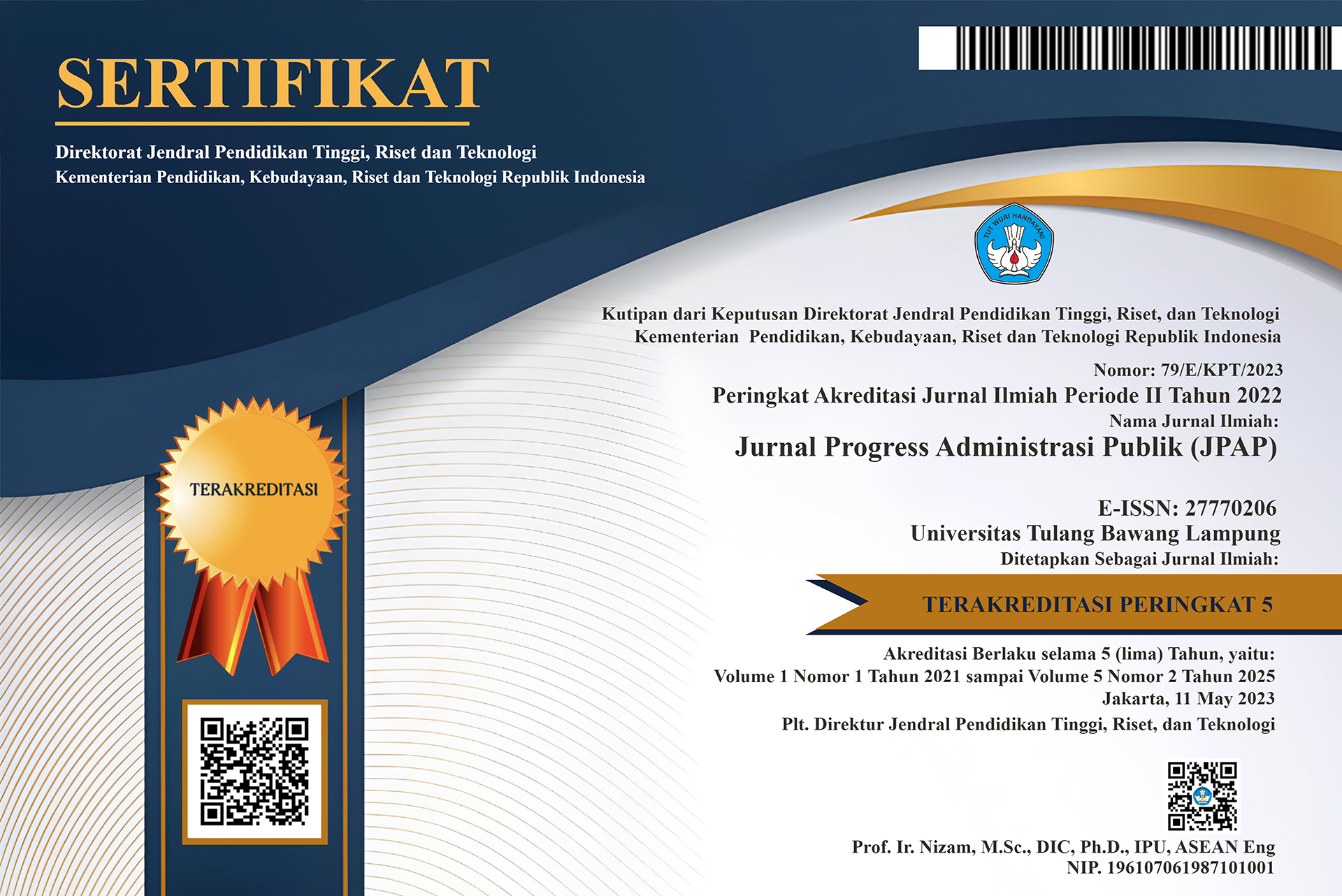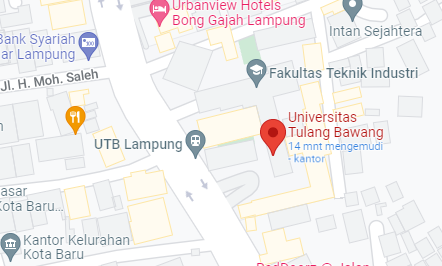ANALISIS PENGELOLAAN LOGISTIK PEMILU 2024 KPU PROVINSI JAWA TIMUR
DOI:
https://doi.org/10.37090/jpap.v4i1.1232Abstract
Indonesia is a democratic country that uses an electoral system for every change of president. High quality general elections are very important to realize people's sovereignty in a democratic state government based on Pancasila and the 1945 Constitution of the Republic of Indonesia. To hold democratic elections, professional election organizers are needed who have integrity, capacity and accountability. The General Election Commission is an example. In this research, the author uses a descriptive approach as a qualitative research method. Qualitative research is a type of research that describes and analyzes events, phenomena, social activities, attitudes, beliefs, perceptions and thoughts of individuals and groups. Data was collected from interviews with three informants from the General Election Commission, which is responsible for logistics management for the 2024 election. As shown by the distribution of logistics for the 2024 election, the results show that the East Java Province General Election Commission manages state property well, including logistics election. However, several improvements and strengthening are needed in the human resources sector as well as warehouse and other logistics infrastructure so that the upcoming General Election can take place optimally and according to planning. Our common goal is successful simultaneous elections in 2024 with transparent financial administration and accountability. Keywords: Management; Elections; KPUDownloads
References
Aditya Perdana, Benget Manahan Silitonga, dkk. (2019). Tata Kelola Pemilu Di Indonesia (P. U. T. A. P. M. Sukmajati (ed.)). Komisi Pemilihan Umum Republik Indonesia. https://www.academia.edu/download/61649422/Buku_TKP20191231-13262-5cm9ud.pdf
Aja, E. P. (2021). Managemen Logistik Pemilihan Umum Kepala Daerah Tahun 2020 di Kabupaten Manggarai. Universitas Nusa Cendana.
Amir, T. M. (2023). Analisis Pengelolaan Logistik Pemilu TAHUN 2024. Nusantara: Jurnal Ilmu Pengetahuan Sosial, 10(3), 1116–1125.
DIPO, D. (2021). Analisis Terhadap Kedudukan Peraturan Komisi Pemilihan Umum Dalam Hierarki Norma Hukum Indonesia Berdasarkan Undang-Undang Nomor 12 Tahun 2011 Tentang Pembentukan Peraturan Perundang-Undangan. Universitas Jambi.
Eka Wisnu Wardhana, & Candra Dewi, O. A. (2021). Optimalisasi Jumlah Kendaraan Dan Rute Distribusi Logistik Pemilihan Di Kabupaten Kediri Pada Masa Pandemi. Electoral Governance Jurnal Tata Kelola Pemilu Indonesia, 3(1), 1–25. https://doi.org/10.46874/tkp.v3i1.271
Mariska, R., Kusmanto, H., & Fadli, F. (2021). Analisis Distribusi Logistik pada Pemilu 2019 di Kota Medan. Perspektif, 10(1), 110–119. https://doi.org/10.31289/perspektif.v10i1.4143
Noor Baiti, Murdiansyah Herman, F. F. (2019). Prosedur Perencanaan Dan Pendistribusian Logistik Pada Kpu Kabupaten Batola. Angewandte Chemie International Edition, 6(11), 951–952., 11–28.
Parlin Azhar Haraha, Gomgom T.P. Siregar, & Syawal Amry Siregar. (2021). Peran Kepolisian Daerah Sumatera Utara (Polda-Su) Dalam Penegakan Hukum Terhadap Tindak Pidana Pemilihan Umum. Jurnal Retentum, 2.
Pulungan, M. C., Rahmatunnisa, M., & Herdiansah, A. G. (2020). Strategi Komisi Pemilihan Umum Kota Bekasi Dalam Meningkatkan Partisipasi Pemilih Pada Pemilu Serentak Tahun 2019. Politea : Jurnal Politik Islam, 3(2), 251–272. https://doi.org/10.20414/politea.v3i2.2439
S, Y. S., & Rahmawati, D. (2019). Peran Komisi Pemilihan Umum Dalam Mensosialisasikan Pemilihan Umum Serentak 2019 Pada Kelompok Marjinal Kota Bandung. Jurnal Signal, 7(2), 150–156. https://doi.org/10.33603/signal.v7i2.2416
Zulkarnaen, W., Dewi Fitriani, I., Sadarman, B., Yuningsih, N., Muhammadiyah Bandung, S., & Tasikmalaya, S. (2020).
Evaluasi Kinerja Distribusi Logistik KPU Jawa Barat Sebagai Parameter Sukses Pilkada Serentak 2018. Jurnal Ilmiah MEA (Manajemen, Ekonomi, & Akuntansi), 4(2), 244–264. https://www.journal.stiemb.ac.id/index.php/mea/article/view/373
Downloads
Published
How to Cite
Issue
Section
License
Copyright (c) 2024 Jurnal Progress Administrasi Publik (JPAP)

This work is licensed under a Creative Commons Attribution-ShareAlike 4.0 International License.























